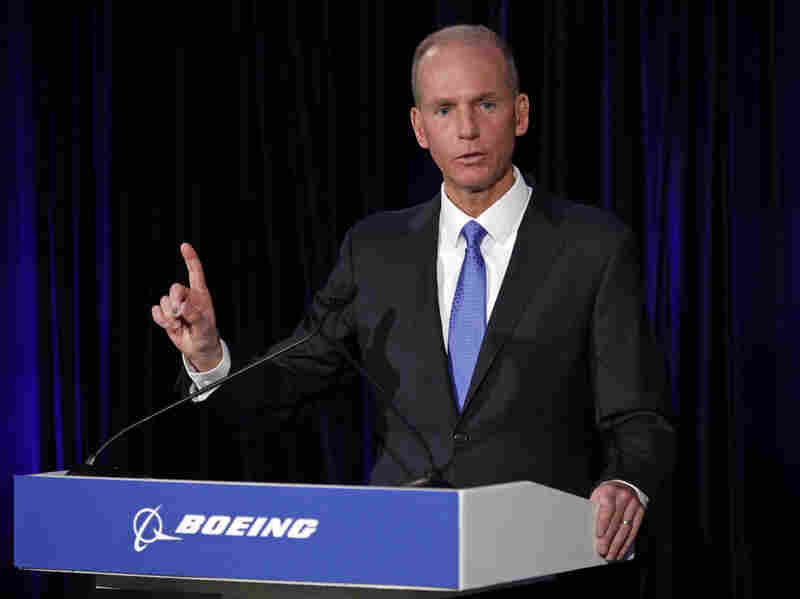Sports Analyst: NBA Reliance On Analytics Hurts Diversity Hiring
NPR’s Michel Martin speaks with ESPN analyst Jalen Rose about why he thinks advanced analytics is hindering diversity hiring in the NBA.
MICHEL MARTIN, HOST:
Let’s talk basketball for a minute. The men’s NBA season is officially over. The Toronto Raptors have won their first NBA championship. And now the big news in the men’s game is the upcoming draft and the big trades, like Anthony Davis heading to the Lakers. So we thought this might be a good time to explore how teams decide. And while there’s been a lot of talk these days about the growing power of agents and big-name players, increasingly, teams are using advanced analytics, really detailed performance data to determine whom to hire.
And Jalen Rose has some thoughts about that. Jalen Rose is a former college basketball star, a member of the University of Michigan’s Fab Five, a former NBA player. And he’s now a prominent sports analyst on multiple shows on ESPN and elsewhere. In a recent conversation with The New Yorker Magazine, Rose argued that the increased reliance on analytics over things like playing experience make it harder for former players, many of whom are minorities, to get high-level positions. I called him to ask him to tell me more.
JALEN ROSE: There became an amazing groundswell of opportunities that presented themselves in powerful positions, whether general manager, president and/or an entire department now that organizations are dedicating themselves to making sure they are on top of the analytics. And they’re able to decipher not only what you see, but obviously they’re able to detect it via the numbers.
So I understand, and I appreciate having all of the information. But at some point, there still has to be some level of logic, expertise. Your eye test has to be something that you’re able to trust along with your instincts to make that big final decision. I just always felt like analytics should be a tool – a wrench, a hammer – that’s a part of the tool box, not necessarily the end-all, be-all to a final decision. And it definitely should not be the sole reason why somebody is put into a powerful position.
MARTIN: In a way, I feel like you’re saying that, well, you’re saying a couple of things that people have seen in other fields. They feel that, say, algorithms are replacing human judgment. And it also – what I hear you saying is that this is a way to kind of keep the club the way it’s always been. Now that more African Americans are getting the experience to move into these front office positions, you have the feeling that perhaps this reliance on data is a way to kind of keep it as the club that it’s always been that has not been particularly diverse. Is that what you see?
ROSE: Well, I’m just really talking about the landscape as I see it and acknowledging how that did take place based on the dynamics you just described. It’s just that what ended up happening with those jobs and the dynamics of professional sports. If you look from the top down, there needs to be more diversity in the powerful positions.
And a lot of times, the numbers became a catalyst to say, here’s an opportunity. Oh, and by the way, since you know analytics, you get pushed to the front of the line. And if you look in the NBA and in many professional sports, there isn’t a lot of diversity amongst those who got their position based on the fact that they were really good at crunching the numbers and doing analytics.
MARTIN: So what kind of reaction are you getting?
ROSE: A lot of support. And the great thing about being open-minded and trying to always be fair, you hear it from all sides. And when people have a good point, you acknowledge it. And when you feel like what you’re saying and what you believe is what it’s going to be, then and you just own it.
MARTIN: That was ESPN analyst former, NBA player Jalen Rose. We’re talking about a piece that just posted in The New Yorker called “Jalen Rose Has A Problem With Basketball Analytics.” And we reached him in Oakland. Jalen Rose, thanks so much for talking to us.
ROSE: Thank you kindly. Have a great day.
Copyright © 2019 NPR. All rights reserved. Visit our website terms of use and permissions pages at www.npr.org for further information.
NPR transcripts are created on a rush deadline by Verb8tm, Inc., an NPR contractor, and produced using a proprietary transcription process developed with NPR. This text may not be in its final form and may be updated or revised in the future. Accuracy and availability may vary. The authoritative record of NPR’s programming is the audio record.


